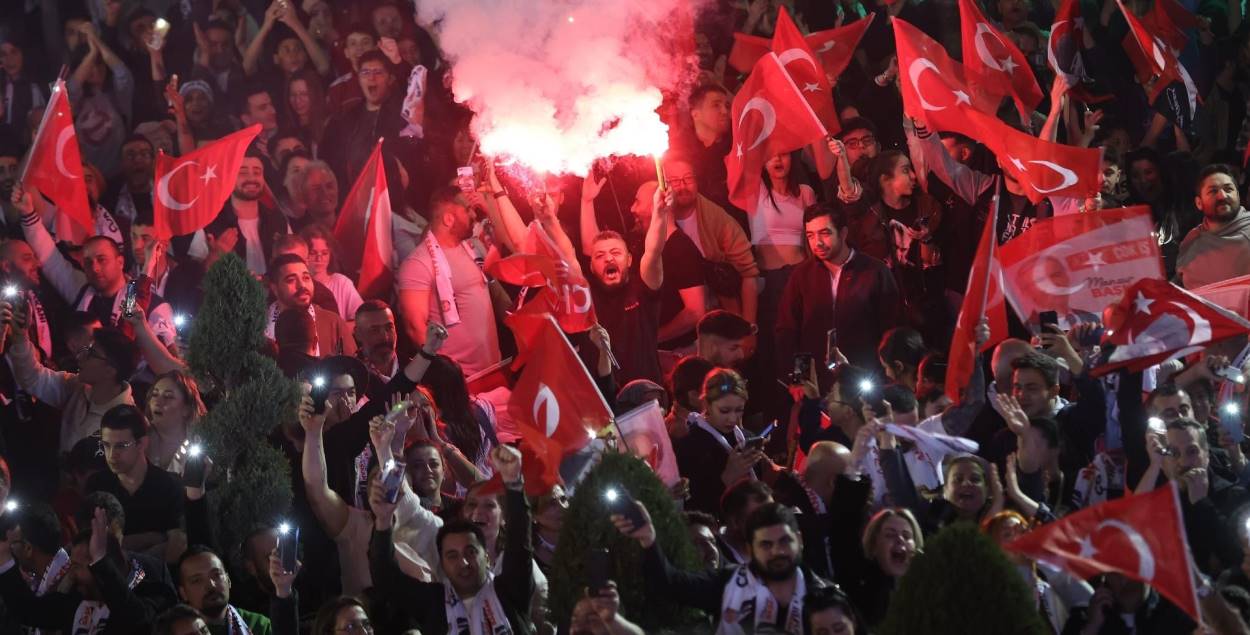Turkish President Tayyip Erdogan acknowledged a major setback for his ruling alliance in the local elections, marking a substantial gain for the opposition.
Ekrem Imamoglu, leading Istanbul’s mayoral race by 10 percentage points, alongside the Republican People’s Party’s (CHP) retention of Ankara and acquisition of 15 additional mayoral seats, signals a pivotal shift. This development represents Erdogan and the AK Party’s most severe defeat over two decades, hinting at a potential change in Turkey’s political dynamics. Erdogan described the outcome as a “turning point.”
The opposition’s victory, particularly in Istanbul, surpassed expectations amid high inflation and voter dissatisfaction. Imamoglu’s address to his supporters late Sunday highlighted a call for change, with some urging Erdogan’s resignation. With a burgeoning profile as a presidential contender, Imamoglu has broadened his appeal beyond the CHP’s traditional base. Erdogan, once Istanbul’s mayor himself, campaigned vigorously for the municipal elections, which was seen as a critical test of his and the opposition’s standing.
Post-election, Erdogan conceded his party’s nationwide dip in support and promised to address voter feedback. He stated, “If we made a mistake, we would fix it,” signalling a readiness to amend any shortcomings. Meanwhile, CHP Mayor Mansur Yavas’s re-election in Ankara further underscored Erdogan’s challenges.
With nearly all votes counted in Istanbul, Imamoglu secured 51.09% support against the AKP challenger’s 39.59%. Contrary to predictions of a close race in Istanbul and potential CHP losses, the AKP and its ally lost control of 19 key municipalities, reflecting the economic pressure on voters.
The CHP’s narrow national lead marked its first in 35 years. Observers like Mert Arslanalp, an assistant professor, regarded this as Erdogan’s harshest electoral defeat since 2002, highlighting Imamoglu’s broad appeal across Turkey’s divided electorate. Imamoglu’s 2019 victory in Istanbul had already positioned him as a formidable opponent to Erdogan, challenging 25 years of Islamist rule.
The economic crisis, characterized by soaring inflation and a slowdown in growth due to stringent monetary policies, was a critical factor in the AKP’s electoral losses. Erdogan anticipates that concluding the election cycle will alleviate economic tensions. Supporters outside the Istanbul Municipality building expressed their hope to see Imamoglu run for president.
Additionally, adopting a firmer stance than Erdogan on international issues, the New Welfare Party’s rise diverted some AKP support. Despite the dissolution of the opposition coalition, Imamoglu won re-election, with considerable support from Kurdish voters, despite the pro-Kurdish party fielding its candidate.
In the Kurdish southeast, the pro-Kurdish DEM party confirmed its dominance, securing 10 provinces amid ongoing tensions with the state. Election day saw scattered violence, including a fatal clash in the southeast and another incident resulting in one death and several injuries, highlighting the elections’ high stakes and tense atmosphere.






